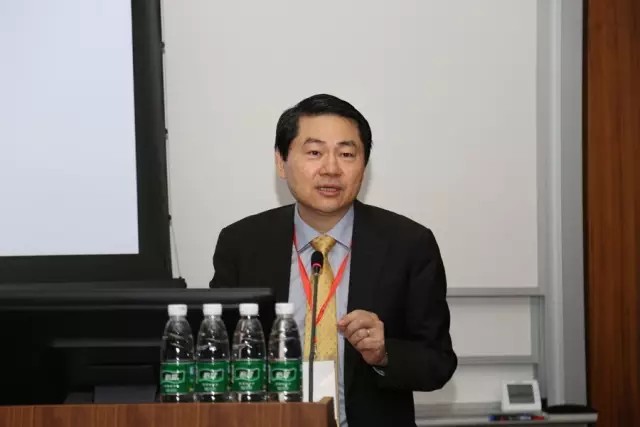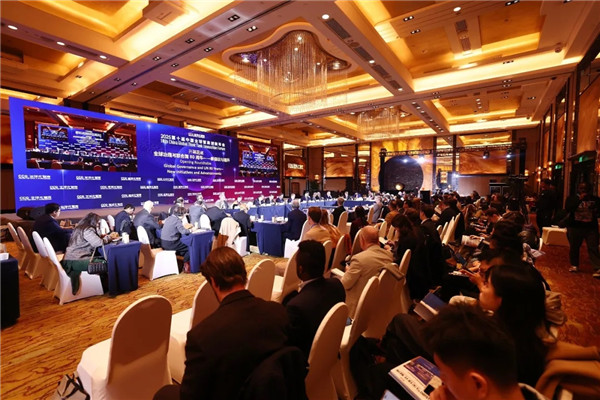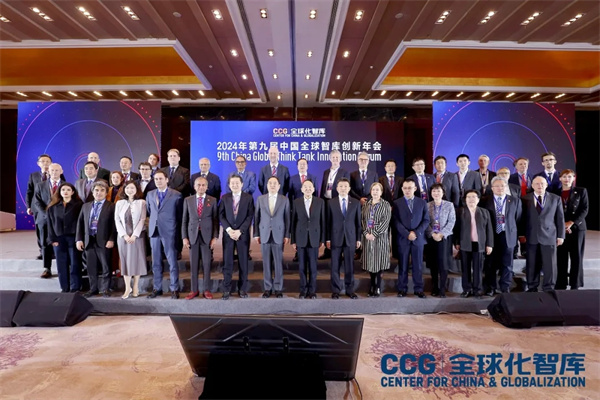CCG Leads Discussion about Innovation and Development of Chinese Think Tanks
On June 6, 2016, the Center for China and Globalization joined its domestic and international partners to hold the 2016 China Think Tank Innovation Summit to explore new models and development paths of Chinese think tanks in the new era. The scholars and experts at the conference agreed that Chinese think tanks need to employ more innovation in academic study, talent cultivation and institutional operations to play a more significant role in policymaking and democracy building.

The summit was jointly hosted by CCG, Think Tank and Civil Society Program (TTCSP) at the University of Pennsylvania, Think Tank Study and Publishing Center at Guangming Daily, and Institute of Development Studies at the Southwestern University of Finance and Economics. It was also supported by Penn Warton China Center and Think Tank: Theory & Practice Magazine run by Chinese Academy of Sciences.

A growing number of Think tanks rose from the horizon since the Chinese government issued the Opinions on Strengthening the Construction of New Types of Think Tanks with Chinese Characteristics in 2015. They have been encouraged to play an important role in policymaking, and expected to take on new tasks, one of which is to provide innovative thoughts and policies as they are required for China to meet new challenges from rapidly changing situation both at home and abroad. Against such a backdrop, the summit was held as the first high-level conference in China focusing on the issue of think tank innovation. It created a platform for leading think tank experts, scholars, and professionals as well as media reporters to exchange their experience and view on how to build new models of think tanks with Chinese characteristics.

Speaking at the opening session, CCG President Wang Huiyao applauded the issuance of the Opinions on Strengthening the Construction of New Types of Think Tanks with Chinese Characteristics for accelerating the establishment of a Chinese think tank community and improving China’s public policy making system. Seizing this opportunity, Wang suggested that Chinese think tanks can enhance their capacity and uniqueness through innovative academic studies, operation, talent cultivation, and institutional reforms to proactively participate in national and global governance.

TTCSP Director Prof. James G. McGann acknowledged the important role of Chinese think tanks in China’s reforms and development. He also emphasized that think tanks should also reform and modernize themselves to become the bridge between knowledge and policies.

Li Xiangjun, the director of Think Tank Study and Publishing Center, explained the reason to focus this summit on innovation is to find out how Chinese think tanks can reform themselves to become more influential and instrumental in building democracy and rule of law.
Plenary Session One: Rebuilding Chinese Think Tanks – Innovation and Development

The opening ceremony was followed by four plenary sessions. The first one, titled “Rebuilding Chinese Think Tanks – Innovation and Development,” was focused on the discussion about how think tanks should position their role and choose their development paths under the new situation. Long Yongtu, former Vice Minister of Commerce and the Chairman of CCG’s Strategic Advisory Board, noted that openness is a fundamentally important way to build internationally influential think tanks. He believes Chinese think tanks should establish multi-level coordination mechanisms in various forms among themselves and with international think tank to enable exchange of different views and perspectives. Deputy Director of State Council’s Development Research Center Long Guoqiang emphasized two key factors to improving think tanks’ capacity for public policy research – high-level talents who understand China’s situation and possess international perspectives, and relaxed environment for academic studies. Wei Jianguo, Executive Deputy Director of China Center for International Economic Exchange and CCG’s advisor, proposed to involve think tanks in policymaking process of the governments at all levels and allow them to contribute their wisdom to public policies. Another CCG advisor and former Vice Minister of CCCPC’s International Department Yu Hongjun called on the government to provide more policy, fiscal and talent support for think tanks, and encouraged think tanks to enhance their research, exchange and communications capacity for stronger impact.
Plenary Session Two: Development of Chinese Think Tanks: An International Perspective

Hosted by Prof. James G. McGann, this session gathered a number of prestigious scholars from international think tanks, including Director General of Ethos Public Policy Lab Jose Chicoma, Senior Research Fellow from Chatham House Tim Summers, Deputy Director of Tsinghua-Carnegie Global Policy Center Tang Xiaoyang, and Professor Zhu Xufeng from the School of Public Policy and Management at Tsinghua University. Comparing the think tanks in China and other countries, they shared international perspectives and provided recommendations on how Chinese think tanks should move forward.
Plenary Session Three: Think Tank Research, Theory Construction, and Innovation

Led by Fang Jin, Deputy Secretary General of China Development Research Foundation, this session examined the changing policy environment in which new models of Chinese think tanks are constructed, and discussed how think tanks can effectively improve public policy system.
Plenary Session Four: Innovation in Think Tank Operation Management and Talent Cultivation

Hosted by CCG Secretary General Miao Mable Lu, this session invited scholars from Chinese think tanks to share their innovation experience and recommendations on how to address the constraints on think tank development.

The summit also organized a forum dedicated to think tank-media exchange, which was titled “New Media, Internet and Think Tank Innovation” and hosted by Deputy Director of Think Tank Study and Publishing Center Wang Simin. The panelists addressed the issues including think tank-media cooperation, opportunities and challenges for think tank construction in the era of Internet, and how to create new channels and methods to expand think tanks’ social influence.

In his closing remarks, Wang Huiyao called for more government support in funding, talent cultivation and public service procurement to push forward think tank development and allow them to play a key role in public policy making.
LocationBeijing




